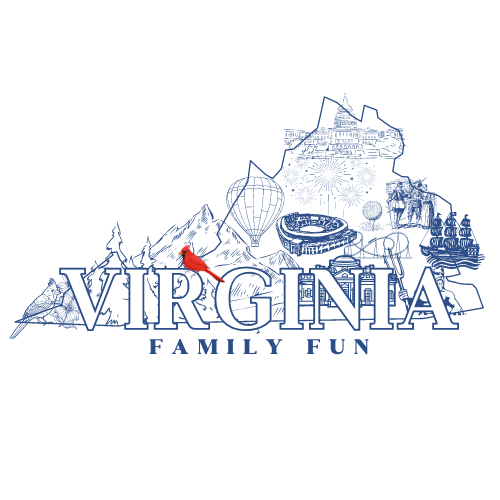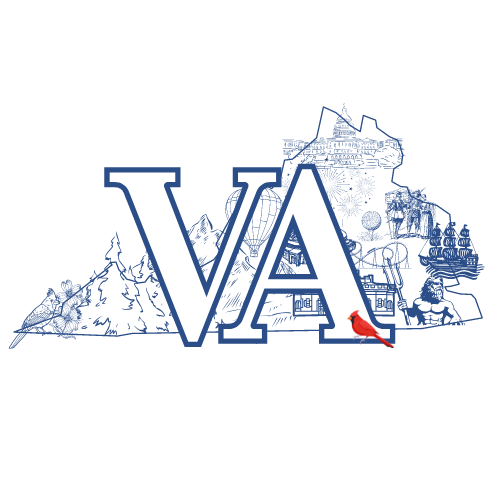Pros and Cons of Moving To / Living in Virginia Guide
Moving to Virginia: Pros, Cons, and Best Places to Live for Families
Are you considering a move to Virginia? Whether it’s for work, military relocation, or simply a fresh start, Virginia continues to be a great destination for people relocating to the East Coast. With its rich history, beautiful landscapes, and diverse cities, it’s easy to see the appeal. But before packing your bags, it’s important to weigh the pros and cons and to get a good sense of which part of Virginia may best fit your lifestyle. Lets look at the biggest advantages and disadvantages of living in Virginia, plus a breakdown of the major regions so you can make an informed decision. And if you're already thinking about fun things to do as a Virginia resident, I’ll link you to lots of helpful guides from right here on VirginiaFamilyFun.org! Virginia is a great place to raise a family!
Pros and Cons of Living in Virginia
The Pros:
Diverse scenery: beautiful beaches, Mountains, rivers, access to large cities and charming small towns
Rich historical sites for American history and cultural attractions in every part of the state
Strong economy and job market (especially in government, tech, healthcare, and education)
Top-rated public schools and universities
Four-season climate with beautiful falls and mild winters (depending on the area)
Close proximity to nation's capital., Baltimore, Outer Banks, and other major destinations
Variety of lifestyle options: urban/larger cities, suburban areas, rural
The Cons:
Traffic congestion, especially in Northern Virginia
Higher cost of living in some regions
Humid climate in the summer and seasonal allergies
Hurricane risk along the coastal region
Limited public transportation outside major metro areas
Higher property taxes compared to some neighboring state of North Carolina or West Virginia
Virginia's Main Regions: Pros and Cons of Moving to Each Area
1️⃣ Northern Virginia (NOVA)
Includes: Arlington, Alexandria, Fairfax, Loudoun, Prince William, Falls Church
Pros:
High-paying government, defense, and tech companies for career opportunities
Some of the best public schools in the U.S.
Proximity to Washington D.C.’s museums, culture, and entertainment
Diverse international population
Access to both urban amenities and nearby outdoor escapes
Cons:
Some of the worst traffic in the nation
Very high-cost housing
High-paced, competitive lifestyle
Median household income: $142,583 (2023)
Median home price: $664,000 (year‑to‑date 2025)
Major employers: Federal government (Pentagon, CIA, NIH), Amazon HQ2 (Arlington), Booz Allen Hamilton, Capital One, Northrop Grumman, large hospital systems (Inova, Kaiser Permanente)
2️⃣ Richmond & Central Virginia
Includes: Richmond, Henrico, Chesterfield, Short Pump, Midlothian, Charlottesville, Goochland
Pros:
Lower cost of living than NOVA
Great local restaurants, breweries, and coffee shops
Strong healthcare sector, government, and universities
Lots of nearby outdoor recreation activities, parks, and state parks
Family-friendly suburbs with top-rated schools
Easy access to the entire Richmond Metro area with minimal traffic
Cons:
Suburban sprawl and growing traffic
Smaller job market for certain industries
Hot, humid summers
Median household income: $62,671 (Richmond city, 2023)
Median home price: ~$389,975 (year‑to‑date 2025)
Major employers: Virginia Commonwealth University (VCU), Capital One, Anthem, Dominion Energy, Bon Secours, McKesson, University of Virginia
Helpful Related Posts:
3️⃣ Coastal Virginia / Hampton Roads
Includes: Virginia Beach, Norfolk, Chesapeake, Newport News, Williamsburg
Pros:
Beaches, water sports, and beautiful coastlines of the Atlantic Ocean
Major military hubs
Lower housing prices compared to NOVA
Milder winters with rare snow
Family-friendly attractions like the Virginia Aquarium, Boardwalk, and Military Aviation Museum
Cons:
Hurricane and flooding risks
Tourist traffic in summer months
Some coastal areas have uneven school ratings
Median household income: $90,685 (2023)
Median home price: $345,000 (year‑to‑date 2025)
Major employers: Naval Station Norfolk (world’s largest naval base), Northrop Grumman, Sentara Healthcare, Canon Virginia, Newport News Shipbuilding, tourism/tidewater businesses
Helpful Related Post:
4️⃣ Shenandoah Valley & Western Virginia
Includes: Roanoke, Harrisonburg, Staunton, Winchester, Lexington
Pros:
Affordable cost of living
Beautiful mountain scenery (perfect for hiking, camping, and outdoor adventures)
Quieter pace of life
Emerging small business and healthcare opportunities
Cons:
Smaller job market overall
Distance from major airports and cultural hubs
Limited public transportation
Median household income: ~Roanoke region estimated ~$58–60K
Median home price (Roanoke): ~$293,475 (2025 YTD)
Major employers: Carilion Clinic (healthcare), James Madison University (Harrisonburg), Rockingham County schools, GE Aviation (Salem), Valley Health, Western State Hospital
Helpful Related Post:
Luray Caverns with Kids: What to Know Before You Go
5️⃣ Southern Virginia
Includes: Danville, Martinsville, South Boston, Emporia
Pros:
Very low housing prices
Quiet, rural atmosphere with community charm and beautiful scenery
Growing interest in revitalization and remote work
Cons:
Limited job options
Smaller healthcare and education systems
Distance from major urban amenities
Median household income: Not fully statewide, but typically <$50–55K (smaller market average)
Median home prices: Likely $200K or less, given rural trends (analogous to Roanoke < $300K)
Major employers: Pharmaceutical plants (e.g., Bella Vista in Martinsville), local school systems, Walmart distribution centers, small manufacturing, Southside Regional Medical
Helpful Related Post:
State Parks Near Farmville for Family Fun
Frequently Asked Questions About Moving to Virginia
Is Virginia a good state to raise a family?
Yes! Virginia offers excellent schools, safe neighborhoods, plenty of outdoor activities, and great healthcare — though where you settle will greatly impact your experience.
Where is the most affordable place to live in Virginia?
Generally, areas like Southern Virginia, parts of the Shenandoah Valley, and smaller towns outside Richmond offer the most affordable housing options.
How bad is the traffic in Virginia?
Traffic is very location-dependent. Northern Virginia (especially I-95, I-66, and the Beltway) is notoriously congested, while smaller towns and rural areas have little to no traffic issues.
Are there job opportunities in Virginia?
Yes — especially in government, defense, healthcare, education, and tech sectors. NOVA has the most job diversity, while rural areas have more limited options.
Your Decision Compass
RegionMedian IncomeMedian Home PriceBest ForNorthern Virginia$142K$664KHigh-earners, federal employees, top schoolsRichmond/Central VA$63K$390KFamilies, healthcare/tech careers, moderate pricesCoastal VA$91K$345KMilitary families, beach lovers, mid-costShenandoah/Western VA~$60K~$293KOutdoor & small town enthusiastsSouthern VA<$55K<$300KRetirees, remote workers, rural living
Low Crime Rates in Virginia
Virginia is generally a very safe state, with violent crime rates among the lowest in the country. Here are some of the safest cities and towns in Virginia with 2025 data:
Bridgewater (Rockingham County): No robberies or vehicle thefts in recent data
Purcellville (Loudoun County): Very low property and violent crime
Buena Vista: One of the lowest crime rates statewide — 93% below average
Blacksburg: Roughly 54% below the Virginia average for overall crime
Lexington, Vienna, Warrenton, Poquoson: All rank among the top safe cities
Pearisburg, Shenandoah, Berryville: Lowest violent crime rates
For minimal crime, look at small towns in the Shenandoah Valley (Bridgewater, Lexington, Pearisburg, Shenandoah) and Northern Virginia’ s smaller towns (Purcellville, Vienna). Poquoson is also notably safe and family-friendly .
🎓 Colleges and Universities in Virginia: A Quick Guide
One of Virginia’s greatest strengths is its outstanding higher education system. Whether you're looking for large public research universities, private liberal arts colleges, or highly specialized schools, Virginia offers a wide variety of options across the state. Here's a quick snapshot of some of the most well-known:
🏛 Public Universities
University of Virginia (UVA) — Charlottesville
Founded by Thomas Jefferson, UVA is one of the top-ranked public universities in the U.S., known for its beautiful campus, strong academics, and highly selective admissions. Popular programs include business, law, politics, and engineering.
Virginia Tech — Blacksburg
A large public research university famous for its engineering, architecture, business, and technology programs. Virginia Tech has a strong sense of community, with a beautiful campus nestled in the mountains.
James Madison University (JMU) — Harrisonburg
Known for its vibrant campus life and strong undergraduate teaching, JMU excels in education, business, health sciences, and the arts. Its central location in the Shenandoah Valley makes it popular with in-state students.
George Mason University — Fairfax
Located in Northern Virginia, close to D.C., George Mason offers strong programs in business, public policy, cyber security, and economics, as well as numerous internship opportunities thanks to its proximity to the nation's capital.
Virginia Commonwealth University (VCU) — Richmond
A large urban public university with nationally recognized programs in arts, healthcare, business, and social work. VCU's medical campus is one of the state's top healthcare training centers.
Old Dominion University — Norfolk
Known for its programs in engineering, education, business, and coastal studies. Its location in Hampton Roads makes it popular with military families.
Radford University — Radford
A smaller public university offering solid programs in education, nursing, business, and criminal justice, with a supportive campus environment.
🏫 Private Colleges
Washington and Lee University — Lexington
A highly selective liberal arts college known for its strong programs in law, business, journalism, and the humanities, located in scenic western Virginia.
University of Richmond — Richmond
A top-ranked private liberal arts university with excellent programs in business (Robins School of Business), law, leadership studies, and international relations.
Liberty University — Lynchburg
One of the largest private Christian universities in the country, offering both in-person and extensive online programs across a wide range of disciplines.
Hampden-Sydney College — Hampden-Sydney (near Farmville)
One of the few remaining all-male colleges in the country, known for its emphasis on leadership, ethics, and strong liberal arts curriculum.
Sweet Briar College — Amherst
A private women’s liberal arts college with a strong focus on leadership, environmental studies, and equestrian programs.
Hollins University — Roanoke
A private women’s liberal arts college known for its creative writing, fine arts, and strong mentoring environment.
🧑🎓 Specialized & Notable Options
Virginia Military Institute (VMI) — Lexington
A military-focused public college with strong leadership and engineering programs, known for its rigorous academic and physical training.
Norfolk State University & Virginia State University
Historically Black Colleges and Universities (HBCUs) with strong reputations in education, social sciences, and STEM fields.
🎓 Best School Districts in Virginia
Virginia ranks 4th nationally in public school quality and safety. Top-performing school districts include:
Falls Church City Public Schools – consistently #1 in Virginia
Arlington Public Schools – A+, top-rated in Niche rankings
York County Schools (Yorktown) – A+ district on the Peninsula
Loudoun County Public Schools – A-rated; excellent test scores
Fairfax County Public Schools – A in Niche; massive district with strong academics
Virginia Beach City Public Schools – Well-rated coastal district (A)
Albemarle County Public Schools (Charlottesville area) – strong academic performance
Roanoke County Public Schools – A grade; reliable rural/suburban schools
Wise County Public Schools – A‑ rated; small but high-performing
Loudoun & Falls Church, Yorktown, Arlington, Fairfax, Virginia Beach round out the top districts
Notable High Schools:
Oakton High School (Vienna) – Ranked 4th in Virginia in 2024 by U.S. News
Langley High School (McLean) – Ranked 2nd in VA, top in AP offerings
Adding economic and housing data helps you see which region aligns with your budget, lifestyle, and career goals. NOVA is premium—if you’ve got the income to match. Richmond offers urban amenities at lower costs. Coastal Virginia gives a beach lifestyle plus military jobs. Western and Southern regions are great for affordability and slower pace, albeit with fewer career options.
Virginia truly offers a little something for everyone and no two regions feel quite the same. Whether you're drawn to the energy of Northern Virginia, the culture of Richmond, the beaches of Virginia Beach, or the mountain charm of the Shenandoah Valley, there’s a spot for every lifestyle and stage of life. I hope this guide gives you a helpful starting point as you consider your move — and don’t forget to check out more of my Virginia travel and family guides as you explore your options!

